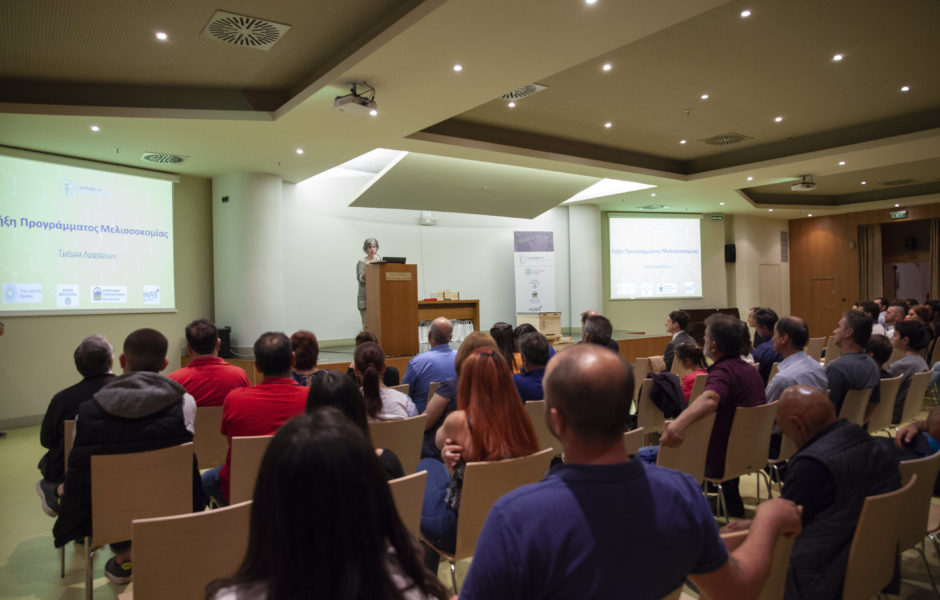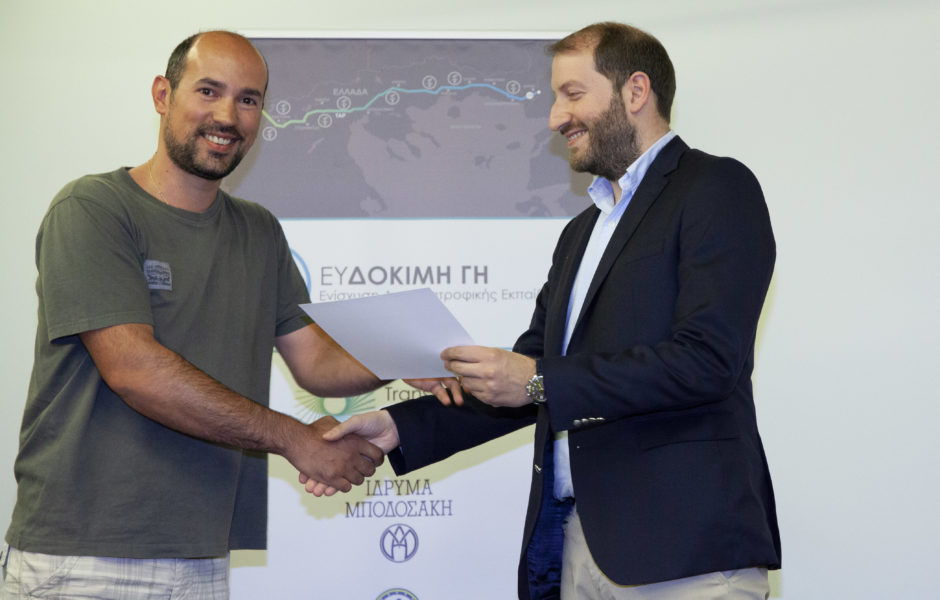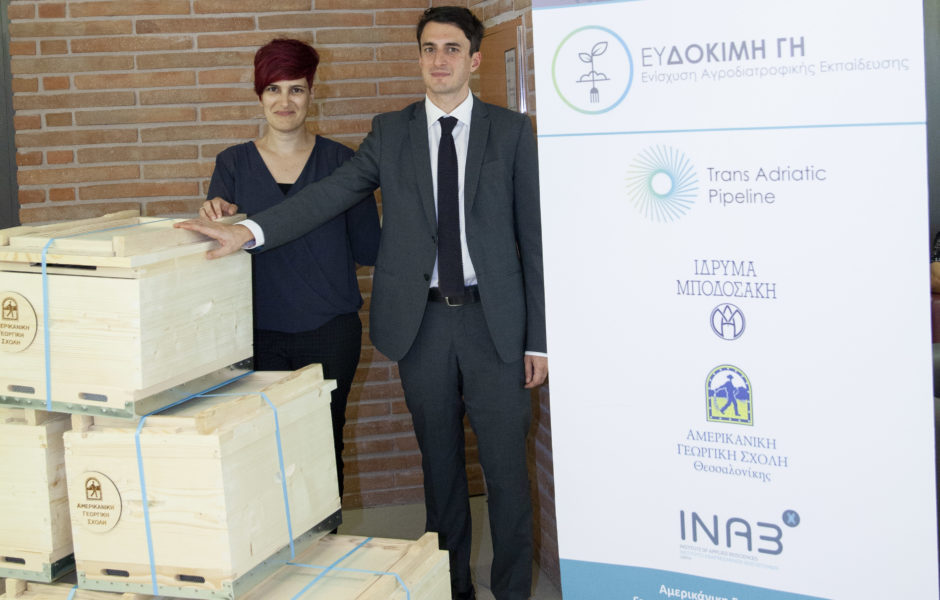Next step is training in the fields
The first phase of its agricultural initiative “Thriving Land | Supporting Agri-food Education”, which is part of the Trans Adriatic Pipeline’s extensive Social and Environmental Investments (SEI) programme in Greece, is now completed.
The “Thriving land” initiative, implemented by TAP as a “Pipeline of Good Energy” in all three of the Northern Greek regions its traverses, regards educational and biotechnological activities. It aims to support the cultivation, marketing, and sale of promising agri-food products or varieties; and of produce that is locally sourced in areas along the pipeline route, such as honey and bee products, olives and olive oil, medicinal and aromatic plants, beans, fruit, petimezi (sugar cane molasses), peppers, and animal products.
The project is implemented by the American Farm School of Thessaloniki (AFS) and the Institute of Applied Biosciences (INAB) of the Centre for Research and Technology Hellas (CERTH), and monitored by the Bodossaki Foundation – TAP’s partner in its SEI activities in Greece.
The open invitation that followed the launch of the “Thriving land” programme was well-received by farmers, as they were interested in the opportunity to
- receive scientific education and training on both a theoretical and practical level;
- improve and/or modernise their processes and production units;
- promote their products; and
- ultimately maximise the scope of their activity.
Overall, 373 beneficiaries –mainly farmers and stock-breeders from small production units or cooperatives– attended various specialised courses between January and June 2018. In total, the scientists of the American Farm School delivered close to 1,000 hours of education and training across Northern Greece. Specifically:
- In the Region of Eastern Macedonia-Thrace, 39 hours of training were offered on local products, such as medicinal and aromatic plants, olives and olive oil, petimezi, honey and bee products (also including seminars on beekeeping and tourism), with the participation of 87 people.
- In the Region of Central Macedonia, 80 hours of training were offered on medicinal and aromatic plants, fruit, beans, animal products, as well as honey and bee products, attended by 115 participants – such as the aspiring beekeeper Manolis from Skydra.
- In the Region of Western Macedonia, 80 hours of training were offered on medicinal and aromatic plants, fruit, beans animal products, honey and bee products, with 171 participants.
The “Thriving land” programme is now entering its second phase, that of practical implementation and personalised support in the fields, while in the coming autumn seminars on the processing and further promoting of products will also begin. The goal of all collaborating partners is for this particular initiative to introduce new and innovative ways to foster development in regional economy, and the agricultural sector in general, in Greece.



